The Digital Technology Industry Law (CCNNS) has implemented comprehensive solutions and policies for human resource development.
The flexible human resource rotation mechanism allows civil servants and public employees from State agencies to be seconded to digital technology enterprises, with their salaries, allowances and job positions retained, and can return with priority; experience at enterprises is highly valued, even being the basis for appointment to leadership positions.

The CNCNS Law stipulates many conditions to support human resources. (Photo: AI)
High-quality digital technology human resources are exempt from personal income tax for the first 5 years of working in Vietnam, creating a strong financial incentive for them to contribute long-term. Foreign experts are granted 5-year visas and work permit exemptions, helping to simplify procedures and attract international human resources to transfer technology and share knowledge.
The State supports funding for training and fostering digital human resources through national programs, cooperation with businesses and educational institutions, focusing on improving advanced technology skills, project management and innovation to meet the global market. The law applies special mechanisms on salaries, working environment and research support, creating conditions for talents to maximize their capacity.
These solutions not only optimize resources but also build a strong digital human resource ecosystem, contributing to mastering core technologies, strategic digital technologies and promoting sustainable development of the industry.

The National Assembly passed the Law on Digital Technology Industry.
The CNCNS Law focuses on increasing the proportion of domestic technology products in the industry through strategic solutions and specific support policies. Foreign-invested enterprises (FDI) are encouraged to transfer technology and cooperate with domestic enterprises through corporate income tax incentives for many years if they meet this requirement. Domestic startups receive 50% funding support to purchase advanced technology and develop prototypes, helping to improve the production capacity of "Make in Vietnam" products.
Domestic digital technology products are given priority for use in state budget projects, ensuring a stable and sustainable output market. Research and development (R&D) activities enjoy maximum incentives, including tax exemptions and financial support, to promote creativity and innovation, helping Vietnamese products not only meet domestic needs but also be competitive in the international market.
The CNCNS Law aims to bring Vietnamese digital technology enterprises to the international market, increase revenue and affirm global brands. The "Make in Vietnam" program is standardized, implementing trade promotion activities and supporting enterprises to expand foreign markets.
Domestic digital technology products are given priority in public procurement projects, creating a solid foundation for developing the domestic market before expanding internationally. Projects with large investment capital enjoy corporate income tax reduction incentives for many years, financial support from the Development Investment Fund, and import tax exemptions for high-tech equipment.
In particular, the State builds a network of Vietnamese CNCNS representatives in key markets, combined with international cooperation programs, helping Vietnamese enterprises gradually become multinational companies, competing equally with large technology corporations in the world.
In order to build a strong CNCNS business ecosystem with the goal of reaching 150,000 businesses by 2035, the Law provides comprehensive support policies. Small and medium-sized enterprises are supported with infrastructure investment costs, high-quality human resource training, and priority to participate in bidding for public procurement projects.
Financially, the State supports investment capital for special projects and funding for technological innovation, helping businesses improve their creativity and competitiveness. CNCNS production projects and supporting businesses receive tax incentives similar to those in particularly disadvantaged areas, while attracting foreign investment to enhance production capacity. The development of CNCNS zones with attractive incentive policies creates an environment for businesses to start up and develop sustainably, contributing to realizing this strategic goal.

National Assembly deputies vote to pass the Law on Digital Technology Industry.
To promote the sustainable, safe and responsible development of artificial intelligence (AI), contributing to improving national competitiveness, the AI Law has for the first time introduced general framework policies and assigned the Government to provide detailed regulations.
The law stipulates human-centered principles that ensure transparency, safety, and non-discrimination, with a requirement that AI systems maintain human control. AI is classified into high-risk, high-impact, and non-high-risk categories, with high-risk systems subject to strict technical requirements and close supervision...
In addition, to take advantage of the huge economic potential of digital assets, while ensuring transparency, security and compliance with international standards, the CNCNS Law for the first time defines and regulates the legal framework for digital assets, including crypto assets and virtual assets, classified by purpose of use and technology, creating a clear legal basis. The Government is assigned to issue detailed regulations, ensuring flexibility and practicality.
These solutions not only promote innovation but also build a transparent digital economy, contributing to enhancing national prestige in the global market.
On June 14, at the 9th Session, the 15th National Assembly officially passed the Law on Digital Technology Industry with 441/445 votes in favor (92.26% approval rate).
The Ministry of Science and Technology - the unit in charge of drafting the CNCNS Law, said that with the passage of the CNCNS Law, Vietnam has become the first country in the world to promulgate a separate law on the CNCNS field.
The CNCNS Law has promptly institutionalized many important contents in Resolutions No. 57-NQ/TW and 68-NQ/TW of the Politburo; proposed a number of major problems and solutions for the CNCNS industry to become a key economic driving force with a growth rate 2-3 times higher than GDP,...
Source: https://vtcnews.vn/cong-chuc-vien-chuc-duoc-biet-phai-sang-doanh-nghiep-cong-nghe-so-ar948911.html







![[Photo] Cat Ba - Green island paradise](/_next/image?url=https%3A%2F%2Fvphoto.vietnam.vn%2Fthumb%2F1200x675%2Fvietnam%2Fresource%2FIMAGE%2F2025%2F12%2F04%2F1764821844074_ndo_br_1-dcbthienduongxanh638-jpg.webp&w=3840&q=75)






![[Video] Vietnam pioneers in building a legal framework for artificial intelligence](https://vphoto.vietnam.vn/thumb/402x226/vietnam/resource/IMAGE/2025/12/05/1764896569407_1764674648895-jpg.webp)

















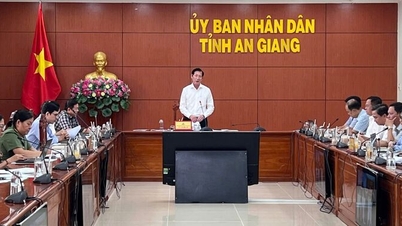












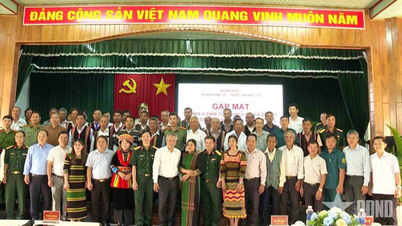





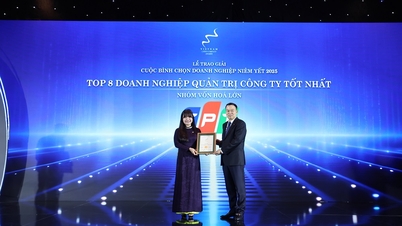



![[VIMC 40 days of lightning speed] Da Nang Port: Unity - Lightning speed - Breakthrough to the finish line](https://vphoto.vietnam.vn/thumb/402x226/vietnam/resource/IMAGE/2025/12/04/1764833540882_cdn_4-12-25.jpeg)
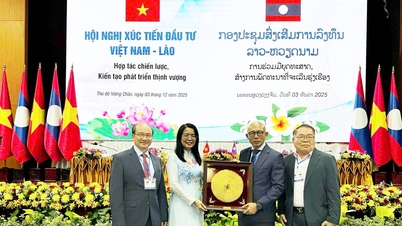
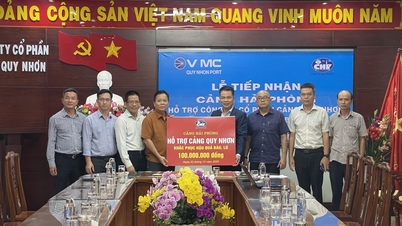
















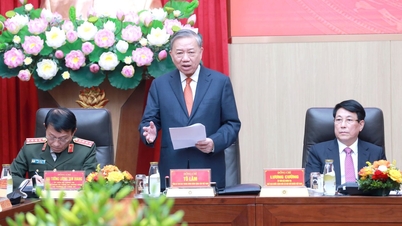

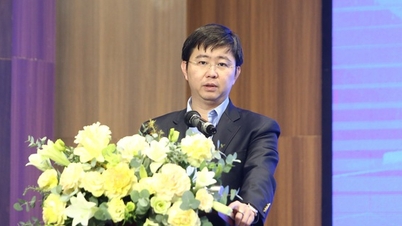













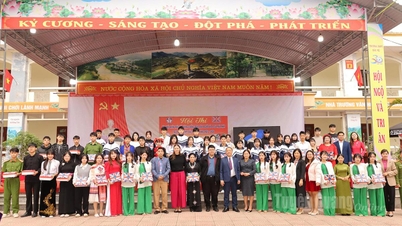














Comment (0)